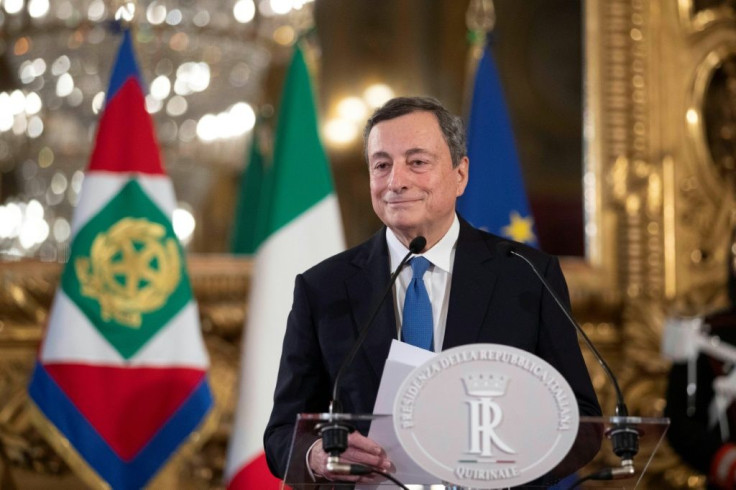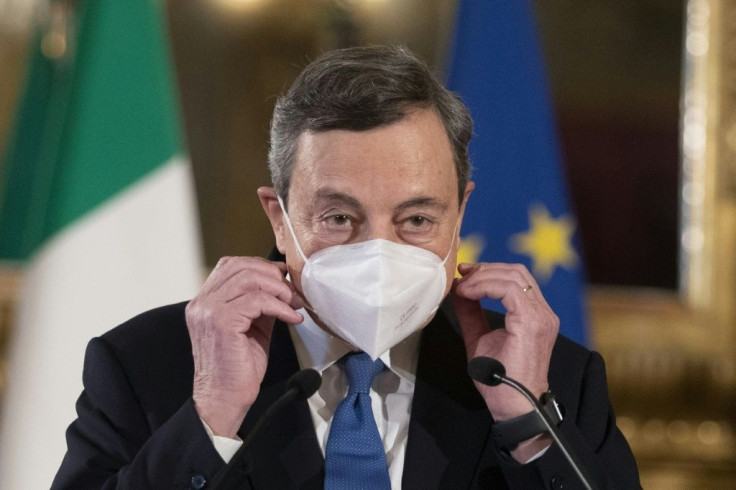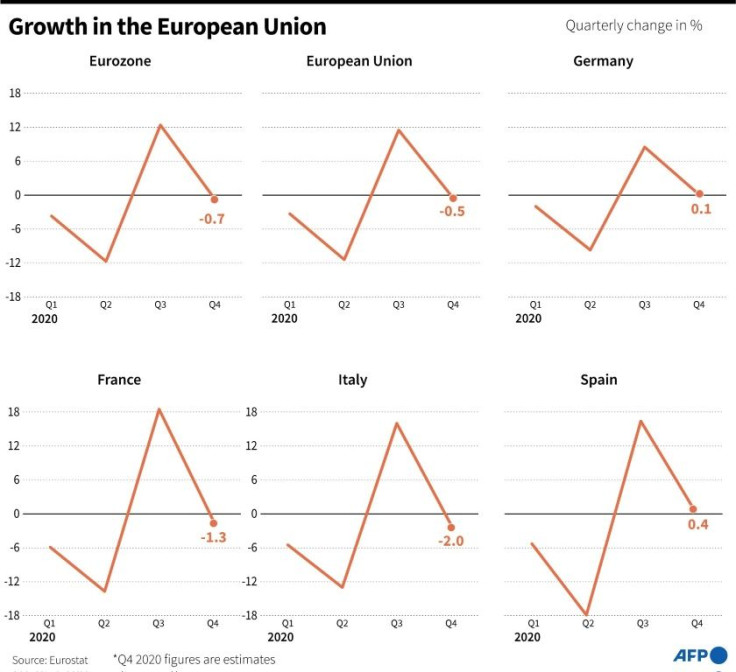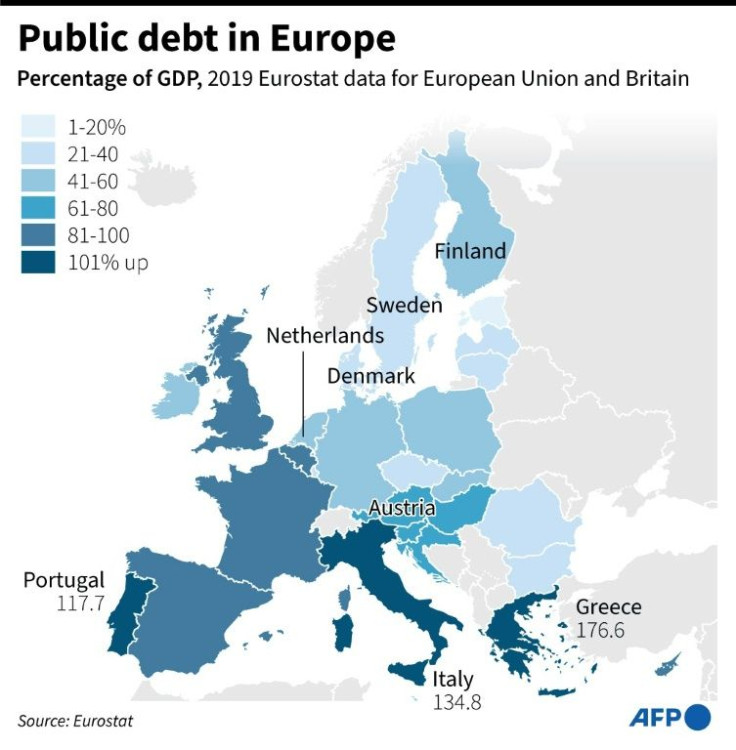The Economic Challenges Facing Italy's 'Super Mario'
Political instability and the worst recession since World War II -- Mario Draghi, the former European Central Bank chief brought in to rescue his native Italy, has some major challenges ahead.
Here are the main economic issues facing Draghi if he succeeds in forming a new government:

The eurozone's third-largest economy is struggling, battered by the devastating effects of the coronavirus pandemic.
It recorded one of the worst falls in gross domestic product (GDP) in the eurozone last year, with the economy shrinking 8.9 percent -- the worst drop since the end of World War II.
Italy was the first European country to face the full force of Covid-19, and imposed a nationwide lockdown in March and April that paralysed much of its economic activity.

When measures were eased, the economy bounced back in the third quarter (+16%) but a second wave of infections prompted new restrictions that sent growth falling yet again (-2%).
Fabio Pammolli, economics professor at Milan Polytechnic's School of Management, noted Italy's economy had already been faltering before the pandemic, and "Covid-19 has worsened conditions".
"Italy continues to be the sick man of Europe," he told AFP.

The government has in response drawn up a 220-billion-euro ($264-billion) spending plan to relaunch the economy, using grants and loans from the European Union's virus recovery fund.
But disputes over how to use the windfall triggered a crisis that eventually brought down Prime Minister Giuseppe Conte's centre-left government.

Matteo Renzi pulled out of the coalition after criticising the outgoing premier for focusing too much on handouts rather than using the funds to bring about structural reforms.
Renzi, himself a former Italian prime minister, cited remarks by Draghi last summer when the central banker said debt was only "bad" when "used for unproductive purposes".
The political turmoil has sparked concerns of delays in the plans for the EU funds, but Draghi's arrival has helped allay some of these.

"If there is one person capable of reassuring Brussels about Italy's determination to implement the recovery plan, it's him," Pammolli said.
"Angela Merkel is leaving the stage, but Europe has a new charismatic leader."
This year Italy also holds the presidency of the G20, which brings together the world's 20 most powerful economies.
The event, whose meetings are spread out over the full year, is an opportunity for boosting a country's international status -- but with the political chaos in Italy, risked being a fiasco for Rome.
"The international stature of Mario Draghi will give the Italian presidency a very specific weight. The country will be able to reposition itself on the geopolitical stage after years of instability," Pammolli said.
Over the course of years, Italy has accumulated a colossal debt of almost 2.6 trillion euros, or 158 percent of GDP at the end of 2020 -- the largest ratio in the eurozone barring Greece.
The EU last year suspended its budgetary rules as a result of the pandemic, but this grace period will not last forever.
"As a connaisseur of the inner workings of the ECB, Mario Draghi is in the best position to negotiate a potential restructuring of the country's debt," noted investment analyst John Plassard at Mirabaud.
The economic restrictions have brought misery for millions. Unemployment rose again in December, reaching nine percent -- well above the eurozone average. Among young people aged 15 to 24, it reached 29.7 percent.
According to the farmers association Coldiretti, the number of Italians needing help to buy food rose by more than one million in 2020 to 3.7 million people -- the "new poor" of the pandemic.
For many, the worst is yet to come.
A freeze on layoffs is due to expire at the end of March. That, said Lucio Lamberti, a professor of strategy at Milan Polytechnic, risks a "serious situation in terms of social tensions."
© Copyright AFP 2024. All rights reserved.





















